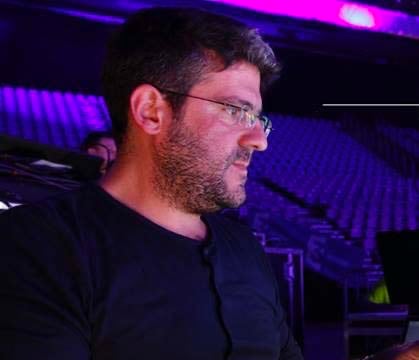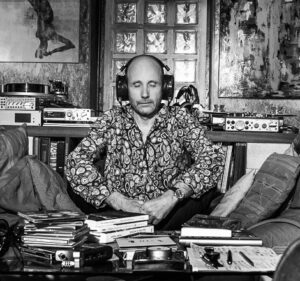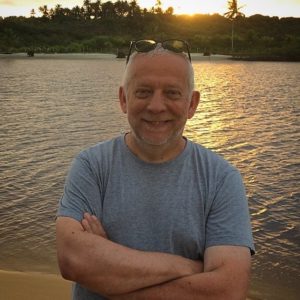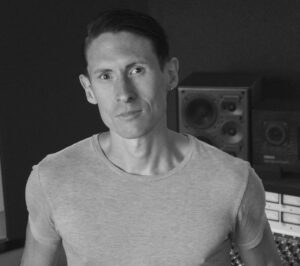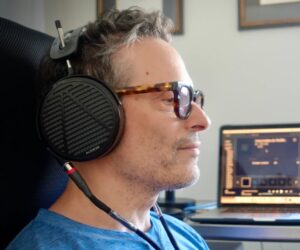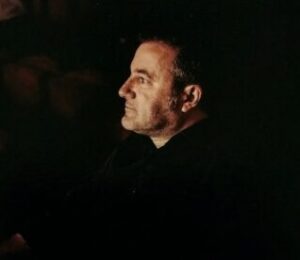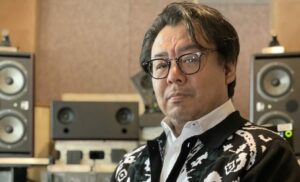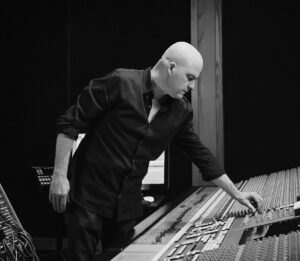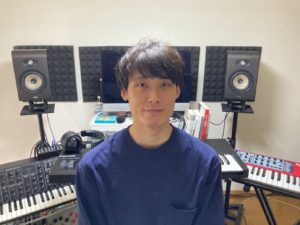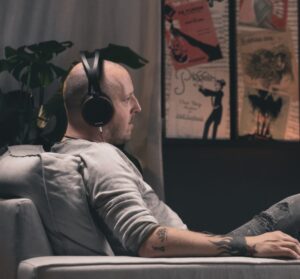Cyril has participated and managed hundreds of shows and concerts for festivals such as Mawazine or the Nice jazz Festival, as well as for philharmonic orchestras, musicals such as Starmania and Notre Dame de Paris, and for renowned artists such as Jean-michel Jarre, Indochine, Michel Sardou, Florent Pagny, France Gall, Véronique Sanson and Christophe. He is a trainer at UBITECH and ARCALYA.
Interview
Cyril, how would you define your profession?
I am a sound engineer for Live, tours and events. I’ve been doing this job for 30 years and I can intervene today at all levels, whether it’s the design and overall management of the sound system for a show or the front-of-house mixing for a concert. My job is to be at the service of people, both spectators and those who want to get their message across. I have to make sure that this message is conveyed as widely and as faithfully as possible. As a teenager, I was fascinated by a Gloria Estefan concert in Puerto Rico that was broadcast on television just before a report on that country. Suddenly, the striking contrast between the joy that emanated from this incredible show and the terrible living conditions of this country made me understand the power of the show and made me want to participate in this magic. If we can be used for that, that’s already quite a lot. I find myself always moved by spotting people in the audience who seem to forget everything and have a good time.
What role does listening to music play in your life?
Not really the one I would like it to play. It’s the story of the shoemaker’s son always going barefoot. As I move around a lot, I only invested in a real listening system for the house quite recently! Otherwise I listen through headphones, but it’s true that as a live sound professional, I work in an environment where sound is omnipresent and I also need to rest my ears. In short, I listen to less music than I would ideally like.
“I heard a real difference with a more qualitative feeling. I shared my discovery with Bertrand who also confirmed my impressions. I have remained faithful to Audirvāna ever since.”
How much attention do you pay to sound quality?
Sound is my job. I have learnt to listen, to pay attention to what is wrong, to make sure that each element of the chain is carefully chosen and implemented. But here too, the world of live show requires a lot of concessions. It is above all a show in which sound is only one component, certainly an important one, but not always a priority even in a concert. We have to make do with the lights and more and more today with video. As a result, the placement of the speakers in particular is not always optimal, as well as the mixing position in front of the stage, which is crucial to adjust the sound in real time during the show according to the events, the audience, etc., and which sometimes ends up in the wrong place, such as under the balcony in some halls. We compensate, but it is sometimes frustrating. Luckily today technology offers us fabulous tools. In fact, I am part of a generation that has experienced over the last 30 years the digital revolution that has brought products that do pretty amazing things with what you give them. All the equipment we use has made huge strides.
How long have you been using AudirvĀna? What did you think when you discovered it?
The starting point was my growing frustration with the use of iTunes. I started looking for online solutions and spotted Audirvāna without buying it right away. It must be said that in general I am very attentive to the phenomenon of psycho-acoustics and how the context can lead you to believe that you are hearing something. Shortly afterwards, my friend Bertrand Chatenet, who is a great sound professional, pointed out to me that the audio algorithms of the preview and iTunes are different on the mac, the former sounding significantly better. As a result, I tried and bought Audirvāna convinced of the influence of the computer’s internal processing. I heard a real difference with a more qualitative feeling. I shared my discovery with Bertrand who also confirmed my impressions. I have remained faithful to Audirvāna ever since.
How do you rate listening from your computer with AudirvĀna compared with other equipment?
Today, the computer plays a central role in broadcasting. It has become the key and essential tool in my profession. You only listen through it, there is no longer really a dedicated source. I can’t always use Audirvāna for live broadcasting because I need to adapt to events with a great deal of reactivity, with transition functions for example which force me to use Qlab, Abbleton live or this type of software.
Do you talk to people about it?
Yes. Not every day of course. But as soon as someone asks me what I use or an alternative to iTunes in particular, I recommend it.
What are your passions outside of music?
I try to take the time to live, to share as many things as possible with my son. Living by the water, I practice various water activities.

